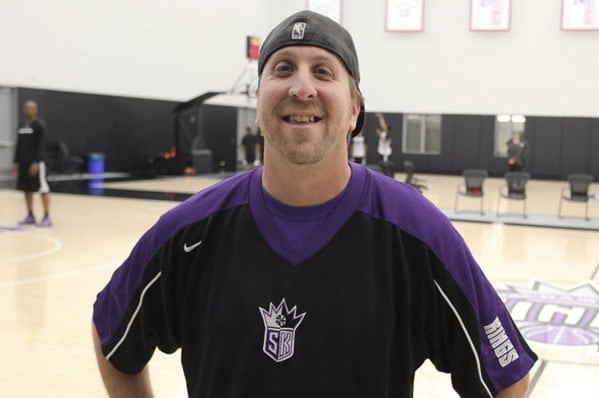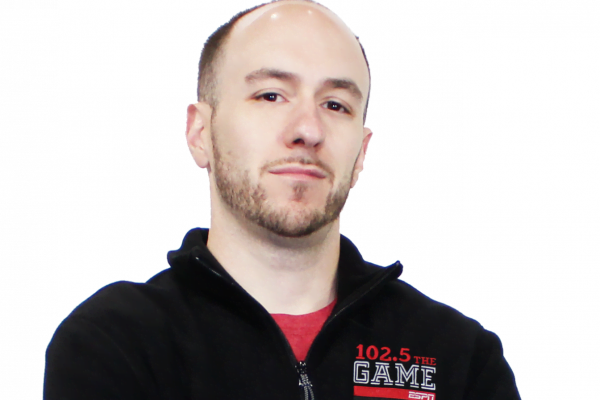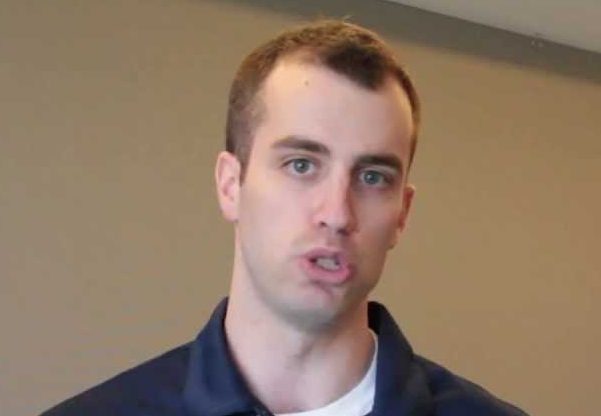There are a lot of radio hosts that say they have great passion for sports and the broadcasting industry. There aren’t as many of those same hosts who actually show it. David Weiglein — better known as Carmichael Dave – isn’t one of these fake smooth talkers. The guy oozes passion for the Sacramento Kings and his sports radio gig. He doesn’t prove his enthusiasm solely through words. Carmichael Dave proves it through his many actions.
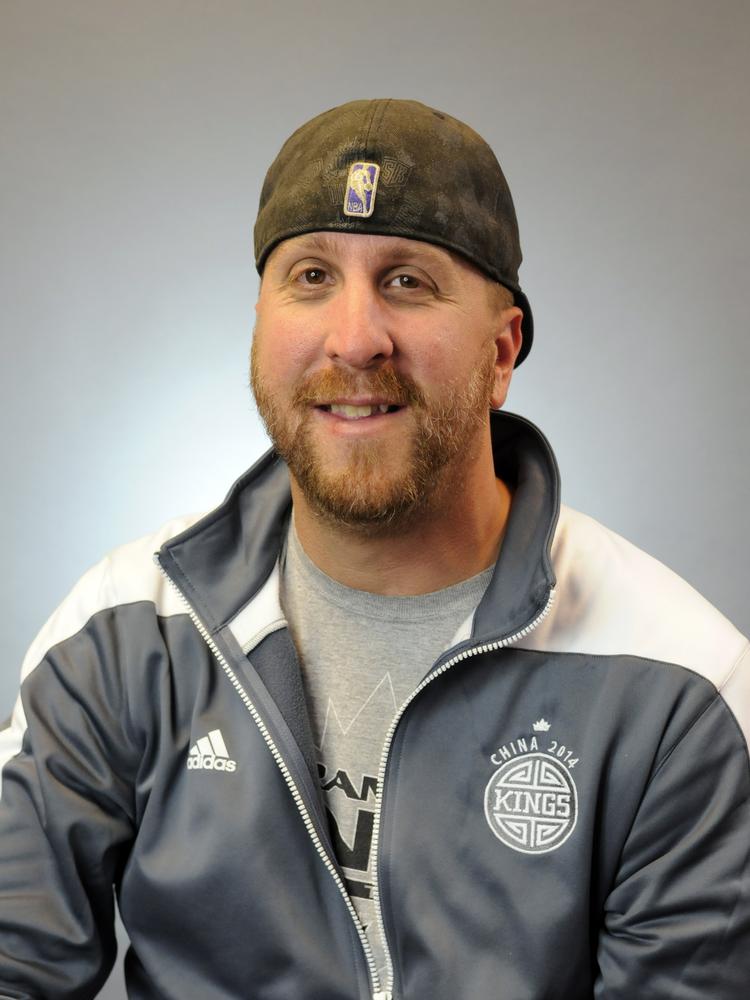
Carmichael is a suburb in Sacramento where Dave grew up. His stage name originates from the many times he called Sports 1140 KHTK as a kid. Dave was so fired up to participate as a teenager that he recorded his calls on a boombox. It was a drug to him. He now hosts a weekday show from 6-9am on the same station he grew up adoring — KHTK.
Dave details the highs and lows of getting fired and re-hired by his current employer. While out of work, he didn’t sit around twiddling his thumbs feeling sorry for himself. Not only did he start a podcast back then, Carmichael Dave raised money and commandeered a 27-foot RV. This dude ended up in New York City during a Board of Governors meeting as he fought for the Kings to remain in Sacramento. If that isn’t real, authentic, genuine passion, I don’t know what is. Enjoy.
Brian Noe: With you being a former caller, does that impact the way you engage with callers now because you understand what it’s like to be on the other end?
Carmichael Dave: One trillion percent. But radio is going away from calls in a lot of ways because of texting and emails. I think the lifeblood of sports radio is trying to create passion. You throw out as a host that bait and you’re trying to hook passion. Every single blinking hold light to me was like a biting fish. As somebody who had gone through it as a kid and as a young adult, I’m taking it very seriously. The radio is off, nobody can talk to me, and I’m shut in a room somewhere because I’m afraid the host is going to come to me at any point. I have taken the time to completely shut my life down so that I can call in unpaid on a radio show and contribute free content.
Sometimes that content sucks, we all know there are crappy callers, but it doesn’t matter. These people are taking time to contribute to your show. You better respect what they’re doing. When they get on the air, we may yell, we may scream, I may think the person’s a moron, but you’re damn straight I’m going to respect their time. You’re taking the time out of your life to participate in my show, I’m going to respect that and I’m going to talk to you.
BN: What helps you connect with your audience the most?
CD: My brand is like an anti-brand. I’m a kid from Carmichael that lucked his way into being able to work at the station he grew up listening to and covering the team that he adores more than anything, the Sacramento Kings. My name is local. Carmichael Dave doesn’t work in Houston. It doesn’t work in New York or L.A. It works in Sacramento and that’s it. I am bonded to this city.
Sacramento is not the first prize in the Price Is Right Showcase Showdown for the vacation. That’s not what we’re known for. It’s a stepping stone.
Think about some of the shittiest cities in the country like Detroit. Everybody thinks Detroit is shitty, right? Like you do not want to go to Detroit. That is a terrible city. But talk to people from Detroit. They’re like yeah D-Town what’s up? They are the most loyal people in the world. Same thing with Stockton here, which is like the Detroit of California. That’s their reputation. But they’re so loyal to where they’re from. That’s my brand.
This isn’t a cultivated character. I’m going to go at it with you. I’m very active on Twitter. I won’t say your mother’s a whore or anything, but in the end I’m a native Sacramentan. I’m born here, raised here, going to die here. We’re all kind of an extended dysfunctional family. If you want to say a brand, that’s my brand. It’s local.
BN: How did things unfold for you going from a caller to being on the air?
CD: The program director at the time was a guy named Mike Remy. He’s one of my big-time mentors. I had an internship when I was 17. The guy who was running the board, who was kind of in charge of everything, he opens the door and he goes “Alright, step into my office. I’ll give you the rundown.” His name was Steve Goss. He’s still there today. He’s our traffic director.
Well, his office was the bathroom. He just starts taking a leak while I’m sitting there at the sink. He says all right here’s what you do, here’s what you don’t do. He’s like turning around from the urinal talking to me. That was my first indoctrination into the inside of a radio building.

From there I did everything I could working for free. Mike Remy said hey dude check it out, you got to learn how to be on the air and you’re not going to get the time you need here right now. There’s a bunch of music stations in town. Go work at a music station, come back to me in a few months and we’ll see what we can do. So I went to this alternative rock station in town. I worked there about a year.
Then eventually I went back to KHTK in ‘01. I got my first break doing backup sports updates for Jason Ross. Jason was doing updates for our afternoon drive host Grant Napear who is also the play-by-play TV voice for the Kings. I grew up absolutely idolizing this dude. He was the alpha and the omega to me. I’m 23 or 24. I called him Mr. Napear. I don’t know what that first update sounded like, but I know Grant will often say that I was like this scared little bunny. He actually told me at one point hey speak up. I did backup updates for four years.
Then one day Mike Remy hired somebody else to do a show from 9 to midnight. That dude lasted a year. His name was Tim Montemayor. He got a job at KMOX in St. Louis and quit that day. I get a call at 4pm. I had a 104-degree temperature. I had strep throat. I was lying in bed but I recognized Mike Remy’s phone number. He said hey I need you to fill in for Tim. He’s no longer with us. The show starts in five hours. It’s at a Hooters for a live remote. So with strep throat and a 104-degree fever and Hooters girls being shoveled in and out of my broadcast, that was the first time I ever hosted a show. Two weeks later they let me keep the spot. I did 9 to midnight for the next six years.
BN: Man, only a few hours to prepare — you’re on location so that’s a whole different animal — what do you remember most about that first show?
CD: I just shit my pants in front of Hooters girls because I was scared to death. I was on right after a Kings-Timberwolves game and thank God it was a win. But I didn’t know enough to know anything. I had never hosted a show. I had never, ever done anything but a sports update on the station and here I am soloing for three hours.
During that broadcast, after I got through all the schematics and phone numbers and stuff, all of a sudden I heard that telltale white noise in my ear again and I was a caller. I was on the air and it was time to dance. All the times that I had spent calling in on Grant Napear’s show or Scott Ferrall’s show or any of these radio shows I called as a kid, instead of having a five-minute phone call it was now a three-hour phone call with commercial breaks. It just kicks in. You’re either able to do it or you’re not. I certainly wasn’t great. I was far from perfect, but I did it well enough to get called back the next day.

It’s always been like that. I’ve always had that attitude that I’m really on a day-to-day contract. What I did today doesn’t matter now. It’s what I do tomorrow that matters. I don’t think I’m ever going to get rid of that attitude. That’s the attitude I had from the very first day I did a show.
BN: What led to you being fired and how tough of a situation was that for you?
CD: The Sacramento Kings had announced that the ownership had come to a deal and they were going to sell the team and move to Seattle. You’ve got to understand again I’m a native Sacramentan. There’s nothing else here, at least at the time. It was the only professional team. I became very vocal as a fan and used my platform as much as I could to speak out against ownership and against the move.
I’ll never forget it; it was a meeting with the bosses in our corporate office. I remember the market manager at the time saying we no longer need you and thank you for your service basically. I was just unbelievably crushed. I just got fired. I didn’t do anything wrong, but ultimately what I did is the powers that be within and outside of the station thought I was being a little bit too noisy and a little bit too much of a nuisance.
At the time I had my brand new wife and I had a two- and a one-year-old child. My wife had not yet gone back to work. I was the sole breadwinner and I got fired in part for speaking out about the Kings.
I started a podcast in my garage. The local magazine here did a cool little front-page cover photo with me in a Kings jersey, wearing handcuffs that were broken to symbolize being free to speak freely. I did a podcast in my garage for a few months where I was basically bringing in a thousand bucks a month in sponsorships, which just barely kept the roof over our head while I was getting unemployment.
In a sense me getting fired from KHTK took me from the idea I always had that I was a caller who was lucky to be there who had a seat at the kids’ table at Thanksgiving and not the adults’ table. When I came back I had kind of proven to myself that even without this station I was able to make some waves and had a voice. The people in Sacramento had my back. They saved my life. They saved my job. When I came back it was like I grew up. I was an adult now. I knew I belonged here and I’ve never looked back. That was almost eight years ago.
BN: The day you got fired compared to the day you returned — how did those completely different experiences impact the way you look at the business?
CD: When I left I thought I’d never work in radio again. I thought that was over. I was going to have to go wear a suit and tie. What happened was…necessity is the mother of invention. It allowed me to spend time on the Kings saga that I couldn’t have before. It allowed me to free myself from the politics that were attached to me — because the Kings and KHTK were partners — and really be an independent voice. It allowed me to rally with the city itself.
What leaving also showed me again, when I returned it was because the people here supported what I did. They supported me and they let their voices be heard. We banded together and it created this bond between myself and this base of listeners and fans where I’m forever indebted to them. I am merely one of them who happens to have a platform and a microphone. When I go to ball games I don’t dress in a suit and tie, dude. I wear a Kings jersey. I’m not a journalist. I’m a fan with a microphone. I’m here to represent the fans. I’m not here for any political bullshit. It’s always, always, always listeners first, Kings fans first.
When I came back it gave me humility. It gave me, not paranoia, but it gave me an understanding that this is a fleeting business. The moment that you sell out, the moment that you stop respecting the people that listen to your station, the moment that you take for granted the fact that you have an audience — with Spotify and Apple Music and streaming services and everything else — for someone to tune in to terrestrial radio and listen to you whether live or on-demand, that is such an insane compliment and an amazing responsibility.
BN: However many more years you have left in radio, what do you want it to look like?
CD: I think the first thing I’d say is that I don’t think I’m much longer for this business. I’ve done what I want to do. Radio is changing. I don’t want this to sound like an old guy fighting the new wave, but what works now are quick-hitter, minute-half sound bits and little video bits. What works now is having two guys at a microphone screaming at each other and throwing out these outlandish takes that they don’t believe. Then you put the video clip of them on Twitter yelling at each other. Then everybody on Twitter yells at each other. Meanwhile you throw in a 30-second commercial for Purina dog food and that’s how you make your money. I don’t want to do that. I don’t want to be a part of argue radio.

I expect I’ll have another two, three, four years in the business at most doing what I do. I’d like to be able to broadcast on my last day. I don’t want to do one of those things where I was fired on a Thursday, there was no show on Friday, and then my replacement is there on a Monday. I’d actually like to go on the air and be trusted enough by my radio station to thank the station and thank the listeners and actually say goodbye. Then I want to go do some real stuff.
BN: Do you have something specific in mind that you want to do whenever you hang up your headphones?
CD: Yeah, I’m going to be the mayor of Sacramento when I get out. I’ve spent years watching and studying people on all levels. When the whole fight for the Kings thing happened I got to know a lot of people here locally, politically. Whether it’s our current mayor Darrell Steinberg, I was very close to Kevin Johnson before him, a lot of our city council members — I see what they do.
What I want to do is take the love and energy I have for Sacramento and the insane growth pattern it has shown since that turning point in 2013 where we have a new arena, Major League Soccer, businesses are coming out here, the Bay Area silicon sector is beginning to expand out here, things are happening in my city that we couldn’t have even dreamt about 20 years ago.
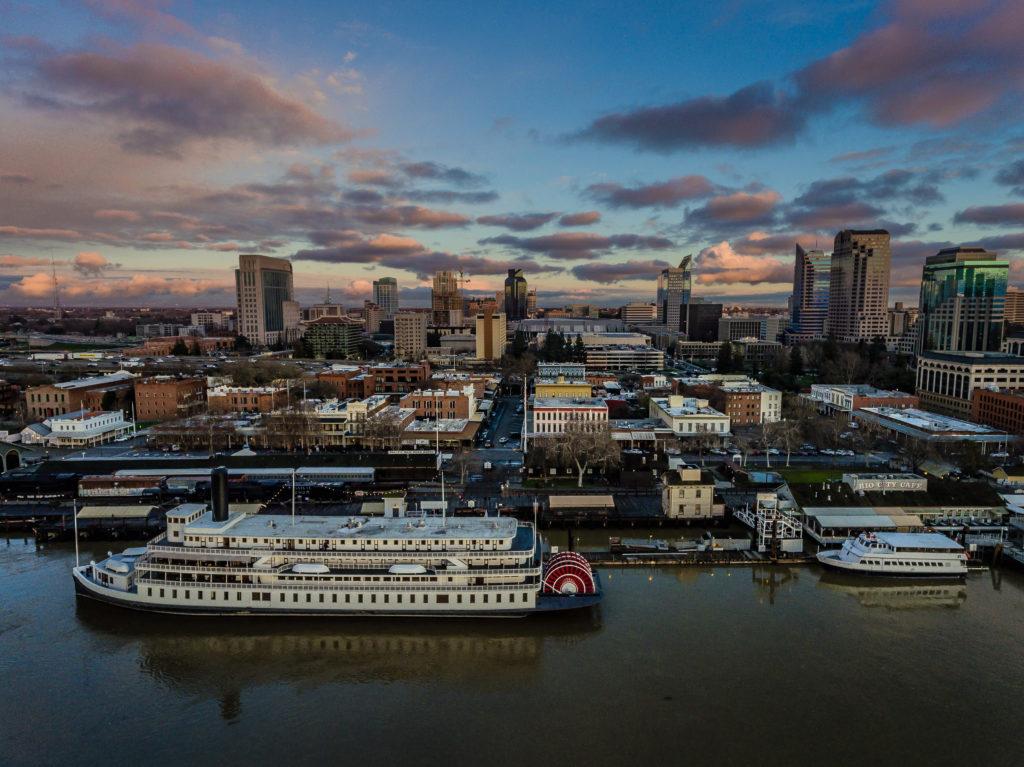
I want to be a part of taking that into the next generation. To spend my life selling the city, getting new business to come here, making it affordable for our current residents, and being able to literally go out there and speak to people each and every day that have problems in this city. Instead of it being a problem with our starting lineup, it’s a problem with the bus system or a library or their school — and really be able to make a solid impact.
I know it sounds silly, but someone’s going to pull this article in some weird Google search in 10 years and you’re going to see me saying I’ll be the mayor of Sacramento at some point in my life. Not out of a sense of ego, but simply out of a sense of duty and out of a sense of wanting to give every part of my being back to the city that gave me so much.
Brian Noe is a columnist for BSM and an on-air host heard nationwide on FOX Sports Radio’s Countdown To Kickoff. Previous roles include stops in Portland, OR, Albany, NY and Fresno, CA. You can follow him on Twitter @TheNoeShow or email him at bnoe@premierenetworks.com.




